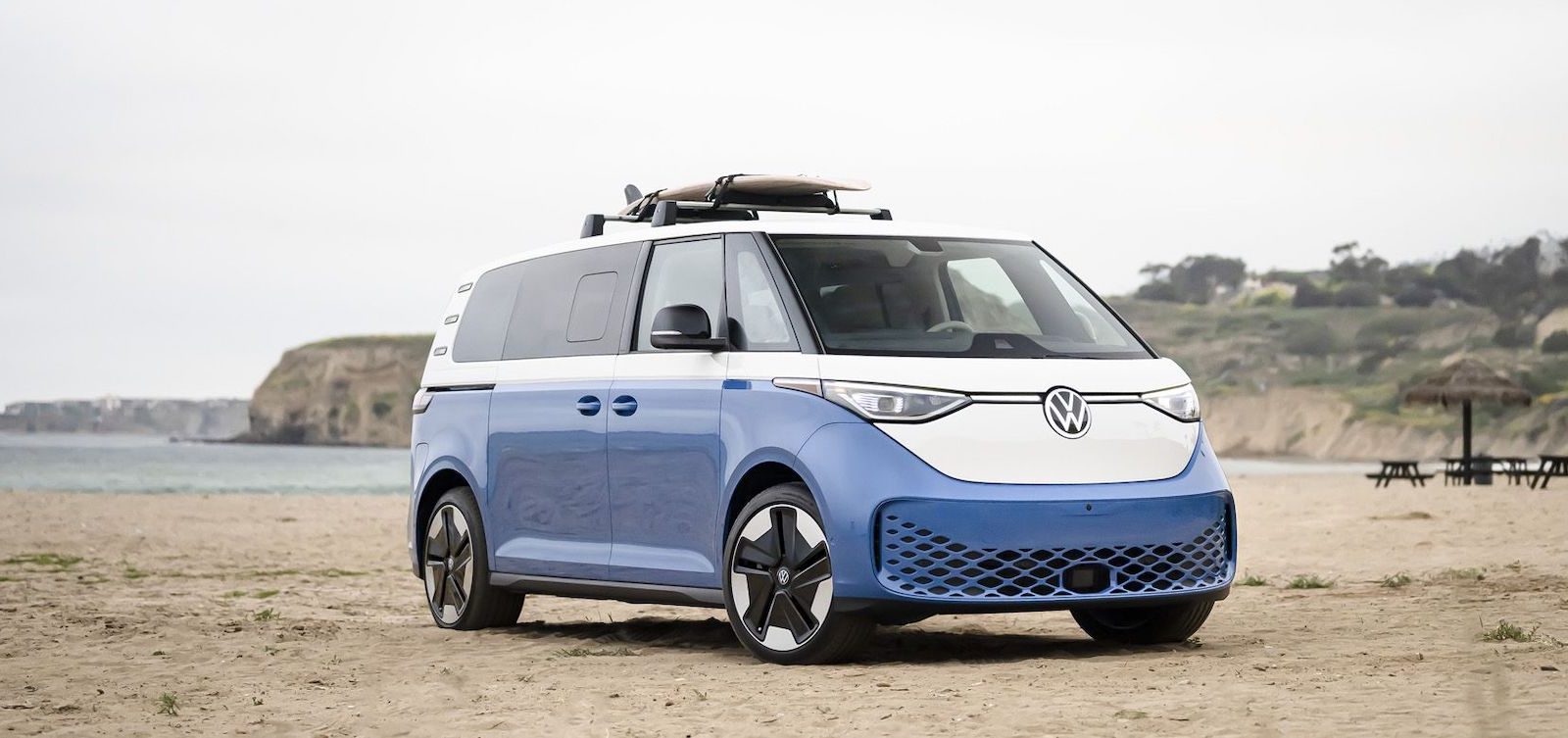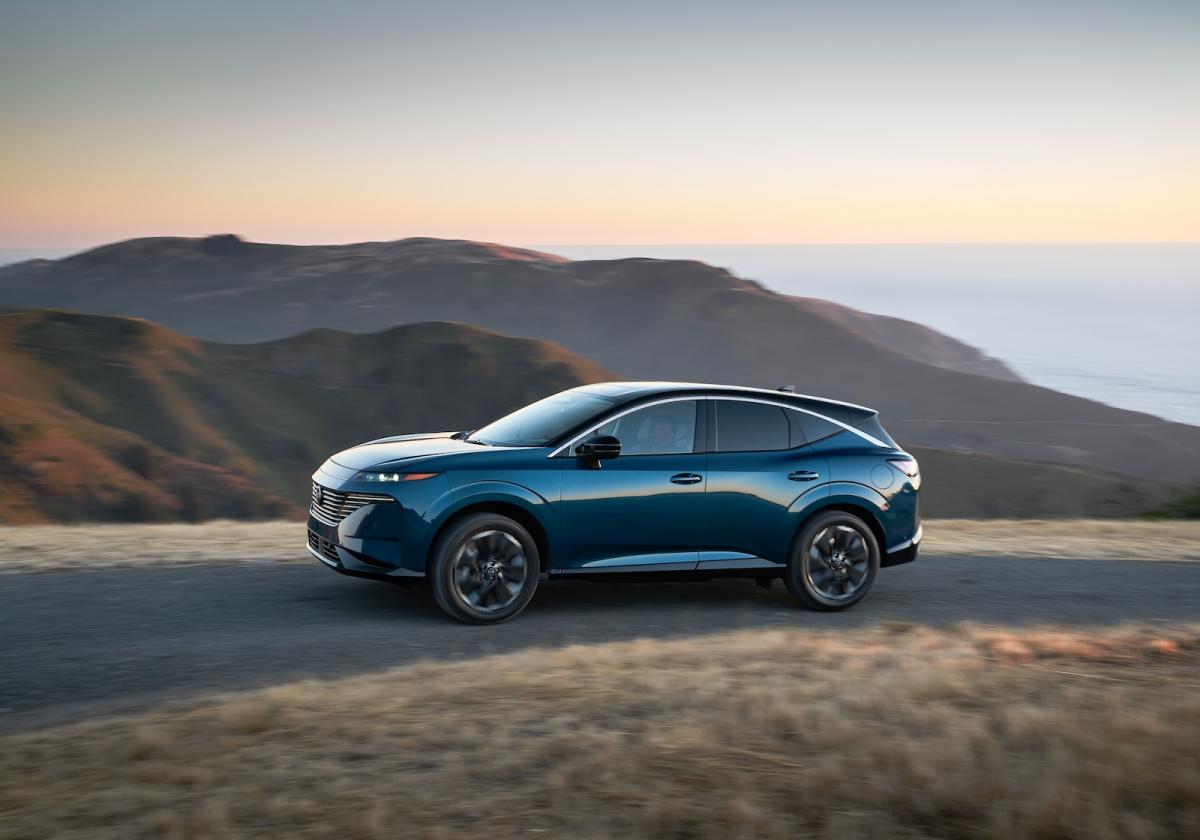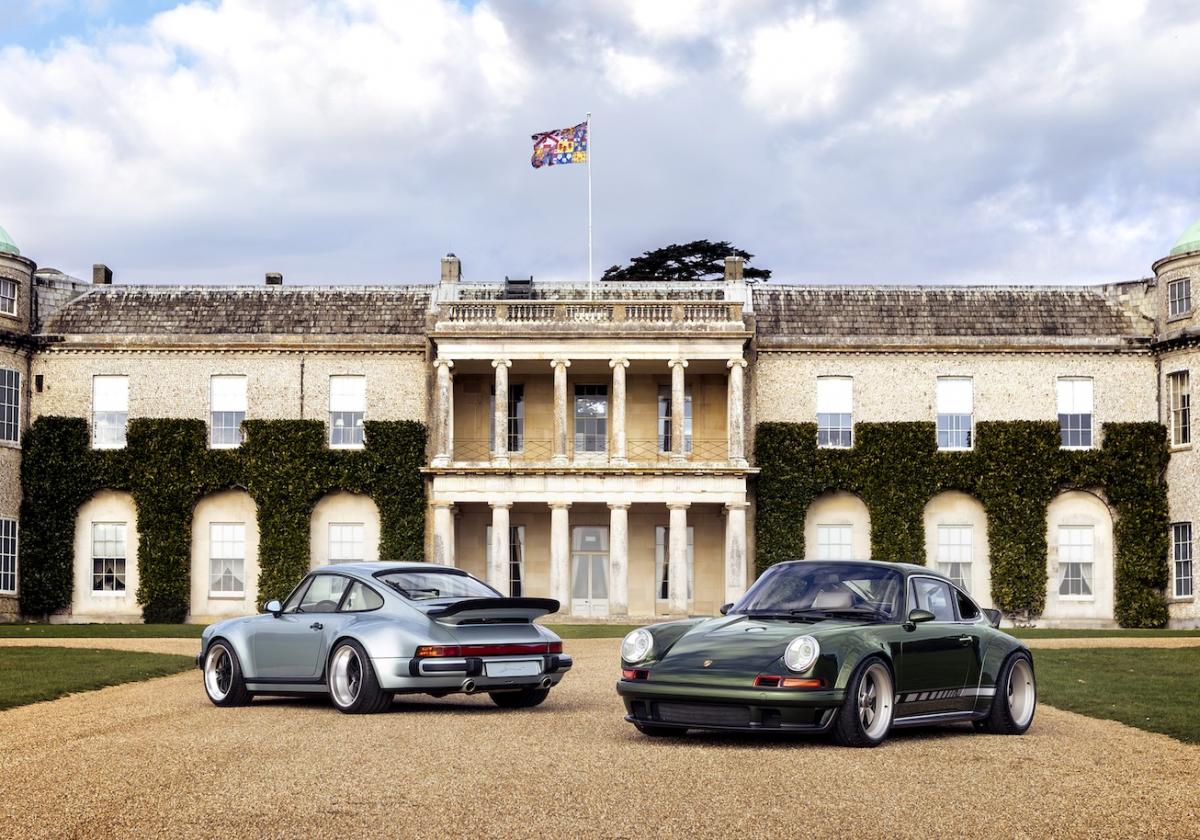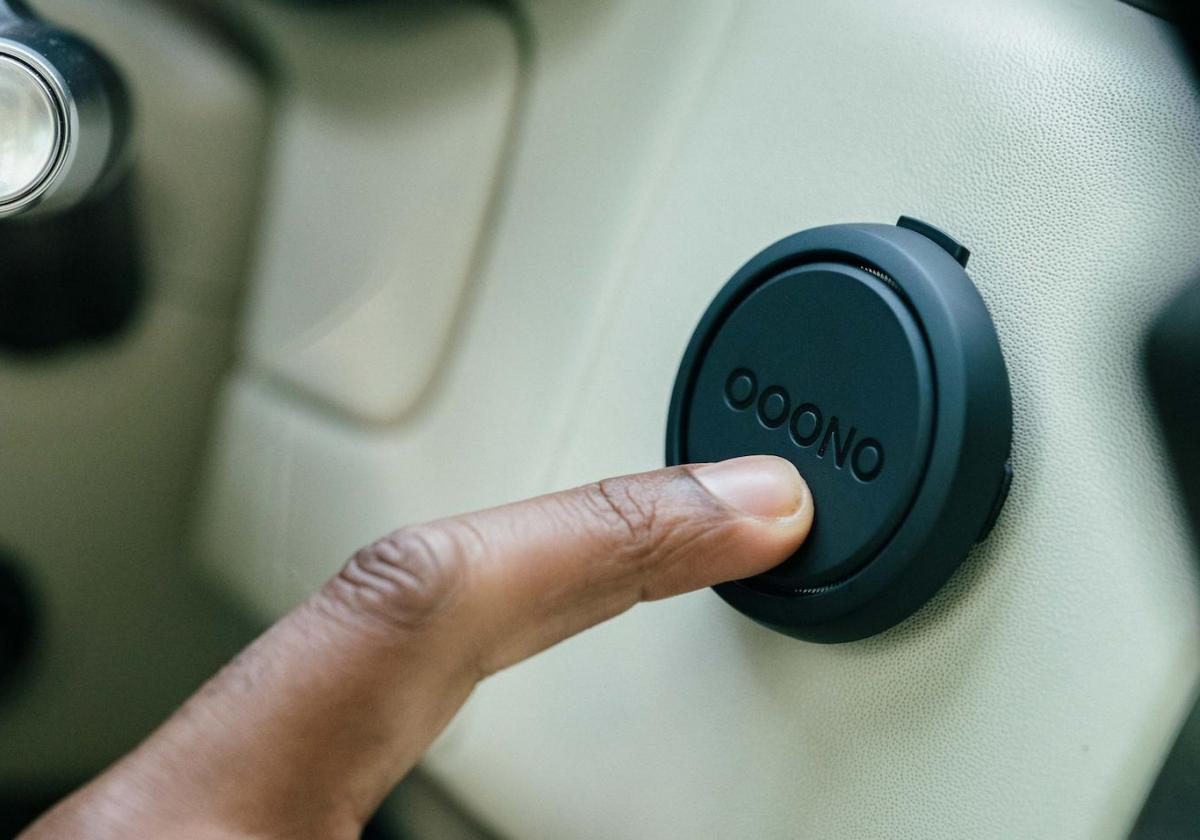As buyers take delivery of their 2025 fully electric Volkswagen ID. Buzz early next year, some will undoubtedly be reliving the Flower Power Movement of the grand old 1960s when the original VW Type 2 Microbus, often called the ‘Kombi,’ was first launched. The all-new I.D. Buzz, the winner of this year’s Best Car of the Year award, inherits much of the legendary Kombi’s culturally significant heritage but styled into a modern 21st-century minivan and powered by a new electric powertrain.
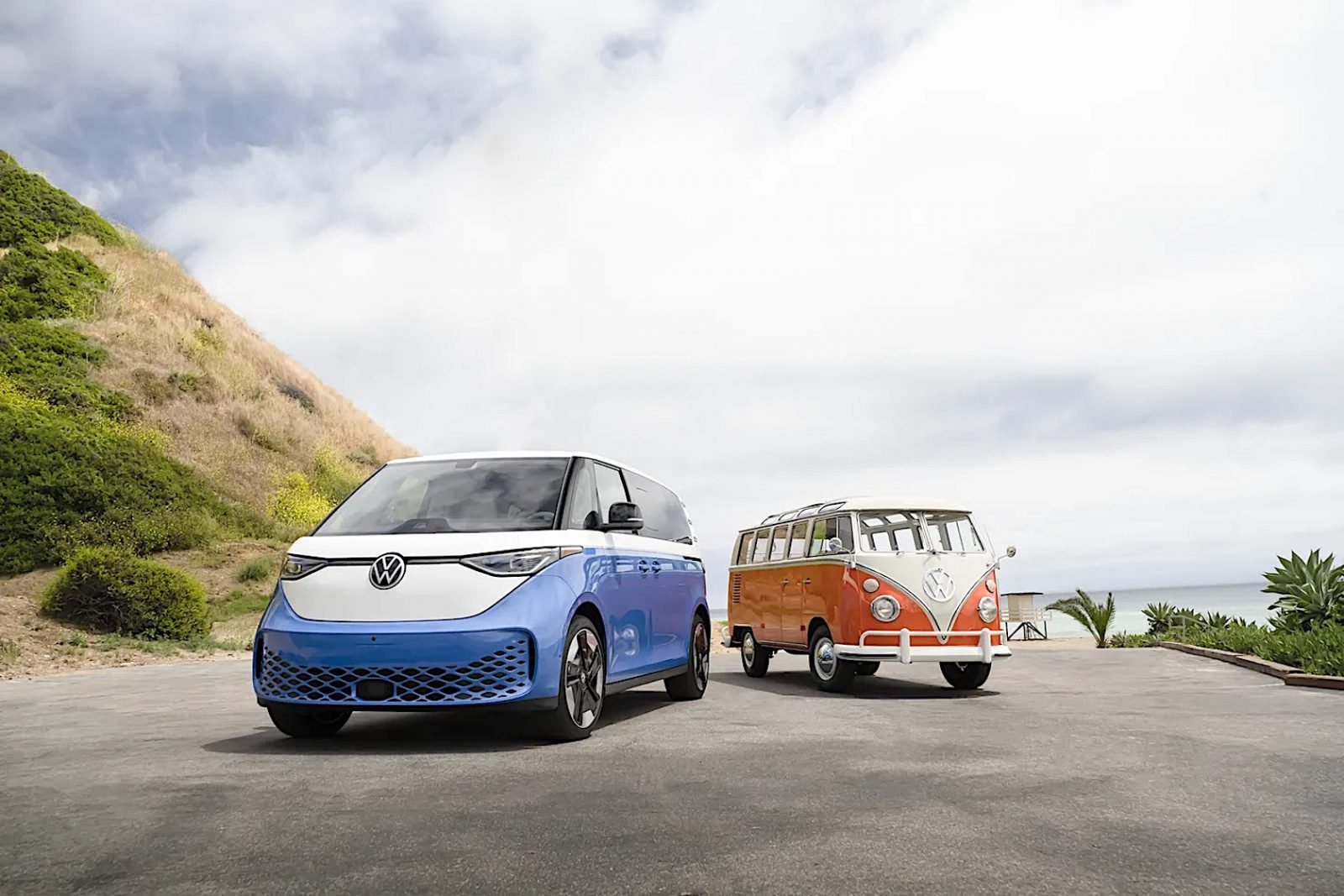
The 5-seater European version was launched last year, but now we finally get to see the 7-seater U.S.-spec model that is some 10 inches longer than the Euro Buzz and therefore gets more room inside. The I.D. Buzz is not as flat at the front end as the original, but it does have a similar boxy style that features an elegantly rounded profile, with some throwback 1960s vent details on the D-pillar and a 2-toned color scheme.
It has dual power-sliding rear doors that extend all the way back to the third row of seats thus making it easy to get in and out. As you’d expect of the latest state-of-the-art minivan, the horizontally sliding windows are also powered, as are the heated side mirrors and the tailgate.
Slated to go on sale in the U.S. in early 2024, the I.D. Buzz is based on Volkswagen’s Modular Electric Drive (MEB) platform, which also underpins the ID. 4 crossover. This new VW comes with two powertrains—the single-motor, rear-wheel-drive model with 282 hp and 406 lb-ft of torque will power the entry-level trim, while a dual-motor, all-wheel-drive model with 330 hp will propel the flagship version.
Both models employ an 86.0-kWh battery pack that is expected to deliver an estimated range of 250 miles, which in modern terms when many EVs offer over 300 miles is only just adequate. That should be enough to allow the Buzz to hook up to a DC fast charger and charge from 10 to 80 percent in 30 minutes.
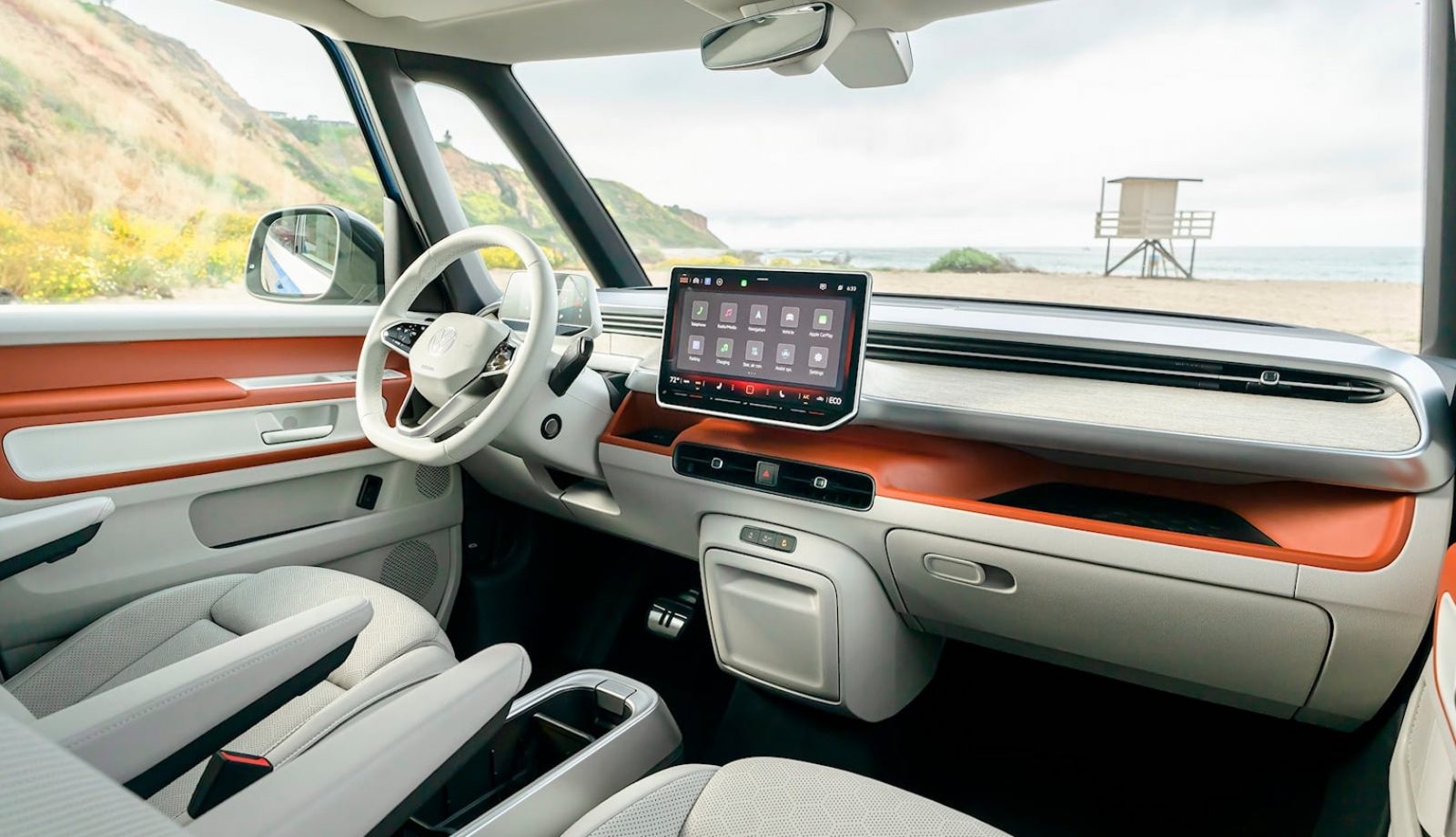
The interior of the ID. Buzz is more spacious than the Euro-spec, boasting seating for up to seven passengers, while the second and third rows can be folded flat to create a large cargo area. The dashboard is dominated by a 12.9-inch touchscreen infotainment system, and there is also a 10-inch digital gauge display. The Buzz comes standard with a variety of features, including a panoramic sunroof, heated front seats, hands-free power lift-gate, automated emergency braking, forward collision warning, lane departure, and ACC.
The ID. Buzz is a unique and stylish electric van that is sure to turn heads as it faces stiff competition from the likes of the Ford E-Transit and the Mercedes-Benz EQV.
OUR THOUGHTS
The I.D. Buzz will definitely be the coolest VW to land in U.S. showrooms in the last half-century, since the Golf GTI (often called the Rabbit). With its iconic looks, 7-seater packaging, and electric powertrain with up to 250 miles of range, the Buzz should walk out of dealers with ease, although it does depend on price. According to Car and Driver and Kelley Blue Book, the starting price should hover around $50,000.

